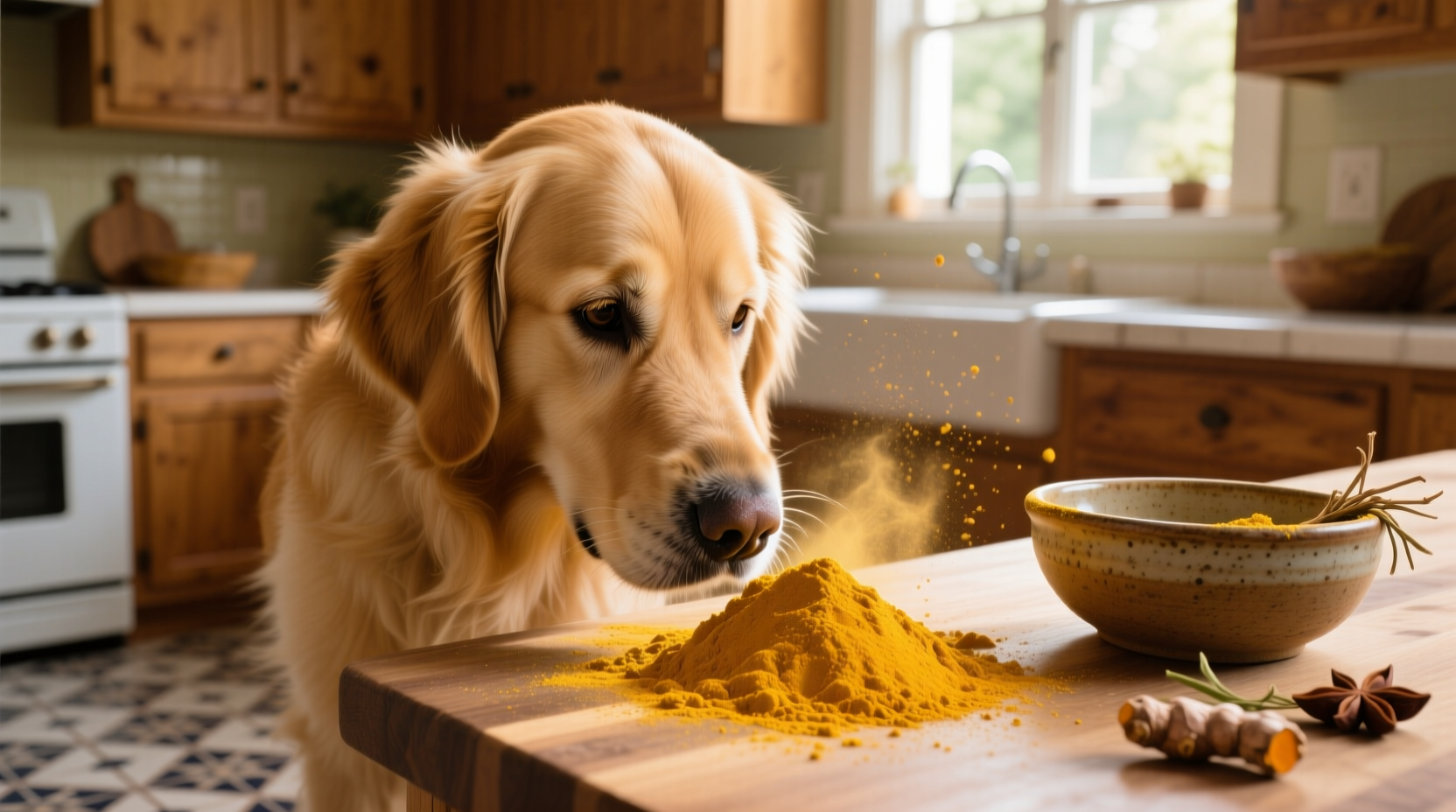As a pet owner, you've probably wondered whether those spices in your kitchen cabinet could benefit your furry friend. With increasing interest in natural approaches to pet wellness, understanding which spices are safe—and which pose serious risks—is essential knowledge. This guide provides evidence-based information to help you make informed decisions about incorporating spices into your dog's diet safely.
Why Spice Safety Matters for Canine Health
Dogs process foods differently than humans, and what enhances our meals could harm them. The American Kennel Club reports that accidental ingestion of toxic spices accounts for approximately 7% of pet poison control calls annually. Unlike humans, dogs have a more sensitive digestive system and different metabolic pathways that can't process certain compounds found in common spices.
| Safe Spices | Beneficial Properties | Maximum Daily Amount* |
|---|---|---|
| Turmeric | Anti-inflammatory, joint support | 1/8 tsp per 10 lbs body weight |
| Ginger | Digestive aid, nausea relief | 1/4 tsp per 10 lbs body weight |
| Cinnamon | Blood sugar regulation | 1/8 tsp daily maximum |
| Parsley | Freshens breath, urinary health | 1 tsp chopped |
*Always mix with food and introduce gradually. Consult your veterinarian for dogs with pre-existing conditions.
Spices That Pose Serious Health Risks
Certain spices contain compounds that can be toxic even in small amounts. The ASPCA Animal Poison Control Center identifies these as particularly dangerous:
- Nutmeg - Contains myristicin which can cause tremors, seizures, and central nervous system damage
- Garlic and onions - Cause hemolytic anemia by damaging red blood cells
- Chili peppers - Can cause gastrointestinal distress and mouth burns
- Clove - Eugenol content can lead to liver toxicity
A 2023 study published in the Journal of Veterinary Pharmacology and Therapeutics documented that even small amounts of nutmeg (as little as 1 teaspoon for medium-sized dogs) can trigger symptoms within 3-6 hours. Symptoms include disorientation, rapid heart rate, and in severe cases, seizures.

How to Safely Introduce Beneficial Spices
When incorporating dog-friendly spices into your pet's diet, follow this evidence-based approach:
- Start with minimal amounts - Begin with 1/4 of the recommended dose to assess tolerance
- Mix with food - Always combine spices with your dog's regular food to prevent stomach upset
- Monitor for reactions - Watch for 24 hours for signs of digestive distress or allergic reactions
- Consult your vet - Especially important for dogs with kidney disease, diabetes, or on medication
Research from Cornell University's College of Veterinary Medicine shows that turmeric absorption increases by 2000% when combined with a small amount of black pepper and healthy fat like coconut oil. However, black pepper should be used sparingly (no more than a pinch) as excessive amounts can irritate your dog's digestive tract.
Special Considerations for Different Dog Types
Not all dogs respond the same to spices. Consider these context boundaries:
- Puppies under 6 months - Avoid all supplemental spices as their digestive systems are still developing
- Senior dogs - May benefit from anti-inflammatory spices like turmeric, but require lower doses
- Dogs with kidney disease - Cinnamon should be avoided due to potential interactions
- Brachycephalic breeds - Extra caution with powdered spices to prevent inhalation issues
The American Veterinary Medical Association emphasizes that spices should never replace prescribed medications. While turmeric shows promise for joint health, it shouldn't be used as a substitute for veterinary-recommended arthritis treatments without professional guidance.
When to Contact Your Veterinarian Immediately
If your dog accidentally consumes toxic spices, contact your veterinarian or the ASPCA Animal Poison Control Center (888-426-4435) immediately if you notice:
- Excessive drooling or vomiting
- Difficulty breathing
- Unusual lethargy or hyperactivity
- Tremors or seizures
- Discolored urine (indicating potential hemolytic anemia)
Time is critical in spice toxicity cases. Early intervention significantly improves outcomes, with most dogs making full recoveries when treated within 2-4 hours of ingestion.
Practical Tips for Daily Spice Use
Based on veterinary nutritionist recommendations, here's how to incorporate safe spices into your dog's routine:
- Create a turmeric paste with coconut oil and a pinch of black pepper for enhanced absorption
- Add fresh ginger to homemade dog treats for digestive support
- Use parsley as a natural breath freshener by mixing with water to create a mouth rinse
- Make cinnamon-infused water (1/8 tsp in 1 cup water) for dogs with blood sugar concerns
Remember that commercial dog foods are already formulated with appropriate nutrient balances. Spices should be considered occasional supplements, not dietary staples. The FDA Center for Veterinary Medicine recommends that spices comprise no more than 1-2% of your dog's total daily food intake.











 浙公网安备
33010002000092号
浙公网安备
33010002000092号 浙B2-20120091-4
浙B2-20120091-4